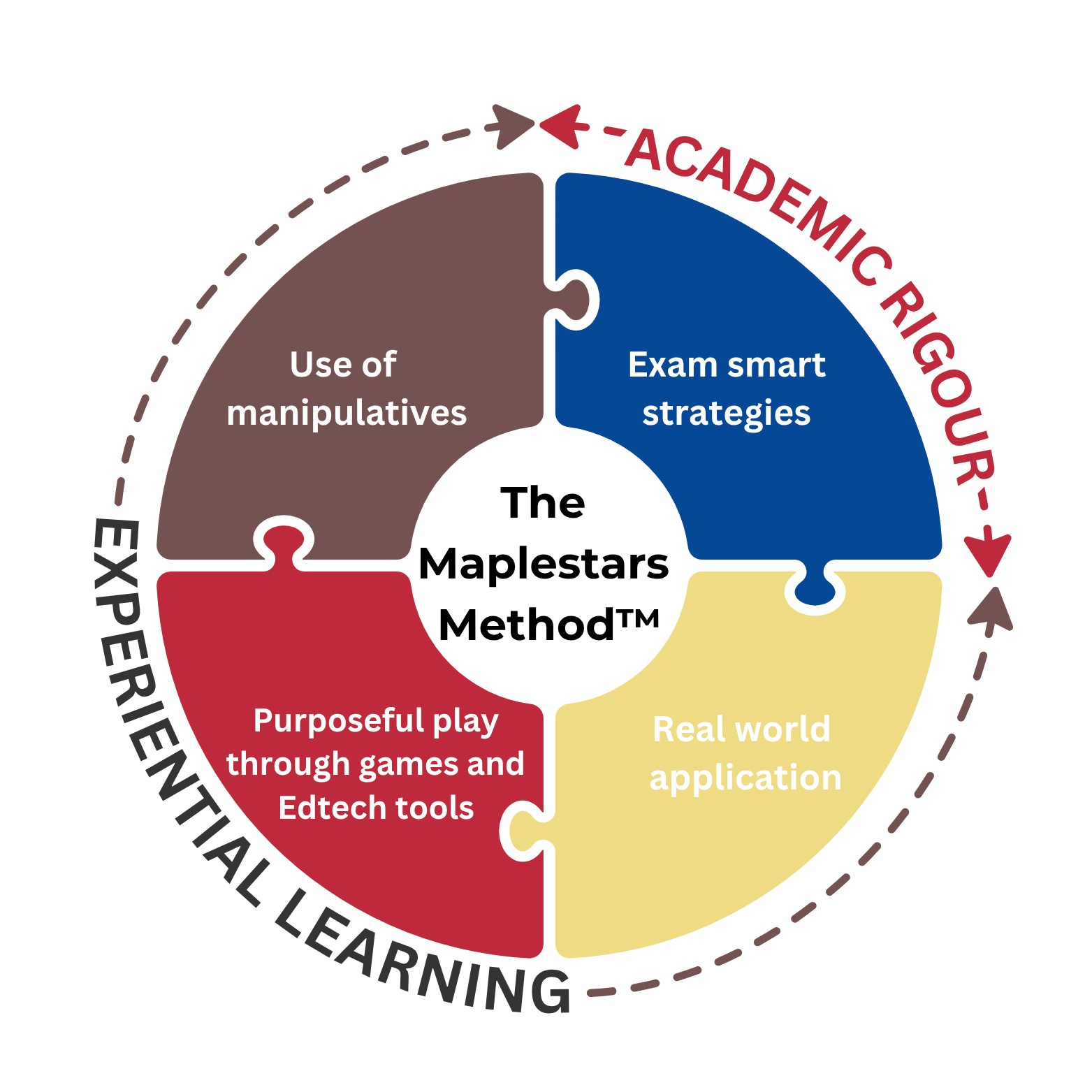The Maplestars Method™
At Maplestars Academy, our teaching approach is grounded in a spiral curriculum, where key concepts are revisited and deepened over time to build strong understanding. We adopt the Concrete–Pictorial–Abstract (CPA) approach, guiding students from concrete manipulatives to visual representations and finally to abstract thinking. Beyond academic mastery, our programmes nurture 21st century competencies — critical thinking, communication and creativity — preparing every student to thrive in an ever-evolving world.
Use of Manipulatives
Manipulatives help students see and touch what they are learning. By using objects like counters, fraction discs, or number blocks, students can better visualize abstract ideas and understand concepts. This concrete approach builds a strong foundation for problem-solving.
Exam Smart Strategies
Our exam smart strategies include the use of heuristics and a structured approach to problem-solving, helping students tackle complex questions with clarity and precision. Our lessons incorporate targeted practice questions that are closely aligned with PSLE and school exam standards, equipping students with the tools and confidence to excel in examinations.
Purposeful Play through
Games and Edtech Tools
Our lessons incorporate play and hands-on activities to make learning engaging and memorable. Through fun games and online learning platforms, students explore concepts in an interactive way. This approach not only sparks curiosity and enjoyment but also strengthens retention of learning.
Real World Application
In our lessons, students apply concepts to real-world tasks — planning a class party on a budget (fractions, percentages) or measuring and designing a mini floor plan (area, perimeter). This makes Math relevant and memorable, builds problem-solving and reasoning skills and helps learners transfer their learning beyond worksheets.
Our Worksheet Structure
Our worksheets are thoughtfully structured to introduce key concepts clearly, then build up from simpler to more challenging questions. This progressive approach supports differentiated learning, ensures strong understanding and encourages students to stretch their abilities with confidence.
At the end of the lesson, students to reflect on and assess their own learning, helping them identify areas of strength and aspects that need further practice. This self-assessment builds metacognitive awareness of their learning process, supporting independent learning and long-term academic growth.






